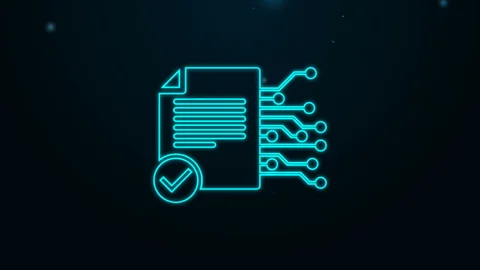Overcoming the Talent Gap in Blockchain Development: Navigating the Future of Decentralized Innovation
Explore the challenge of the talent gap in blockchain development and discover organic strategies for businesses to address it.
%20(2).png)
Blockchain technology has ignited a revolution across various industries, promising transparency, security, and efficiency. However, there's a challenge that often hinders its full potential: the scarcity of skilled blockchain developers. In this detailed blog post, we will delve into the nuances of the talent gap in blockchain development, understanding its root causes, exploring the far-reaching consequences, and revealing practical strategies for businesses to address this gap organically and effectively, enabling them to lead in the realm of decentralized innovation.
Unraveling the Talent Gap in Blockchain Development
The ever-growing demand for blockchain expertise far surpasses the number of qualified developers available. This discrepancy has given rise to a talent gap, making it challenging for businesses to find the right people to drive their blockchain projects. The unique skillset required for blockchain development encompasses cryptography, distributed ledger technology, smart contract programming, and consensus algorithms, making it difficult for traditional developers to transition seamlessly into this domain. Moreover, the dynamic nature of the blockchain ecosystem necessitates that developers stay up-to-date with the latest advancements, adding an extra layer of complexity.
Implications of the Talent Gap
The talent gap has far-reaching implications for both businesses and the blockchain industry as a whole. Slower innovation in blockchain projects restricts the technology's impact on various sectors. Moreover, competition for blockchain developers drives up salaries and hiring costs, making blockchain development an expensive endeavor. The shortage of experienced developers can also introduce vulnerabilities in blockchain projects, potentially jeopardizing security and data integrity.
Strategies to Bridge the Talent Gap Organically
Addressing the talent gap is not an insurmountable challenge. Businesses can implement a range of strategies to bridge this gap organically:
- Education and Training: Investing in training programs and providing employees with opportunities to upskill in blockchain development can be a valuable long-term solution.
- Collaboration: Partnering with educational institutions and blockchain-focused organizations can help nurture the next generation of blockchain developers.
- Global Talent Pool: Embracing remote work and tapping into the global talent pool enables businesses to access skilled developers regardless of their geographical location.
- Consultants and Development Teams: Leveraging experienced blockchain development consultants or outsourcing projects to established teams can expedite development and minimize potential risks.
The Future of Blockchain Talent Development
As the blockchain ecosystem matures, the future looks promising:
- Blockchain Academia: Specialized blockchain programs and academic courses will emerge, producing a pipeline of skilled professionals.
- Industry Standards: The establishment of industry-wide certifications and standards will help validate the skills of blockchain developers, streamlining the hiring process.
- Open Source Development: Increased collaboration in open-source blockchain projects encourages developers to contribute to and learn from the global blockchain community.
The talent gap in blockchain development is indeed a challenge, but it is also an opportunity. By investing in education, forming partnerships, and embracing the global talent pool, companies can bridge this gap organically. This, in turn, will stimulate innovation and drive the widespread adoption of blockchain technology across industries. The evolving blockchain ecosystem and the expanding array of educational resources ensure a bright future, equipped with a thriving blockchain talent pool. In this dynamic landscape, adaptability and a commitment to blockchain expertise remain crucial for businesses looking to shape the future of decentralized innovation.


